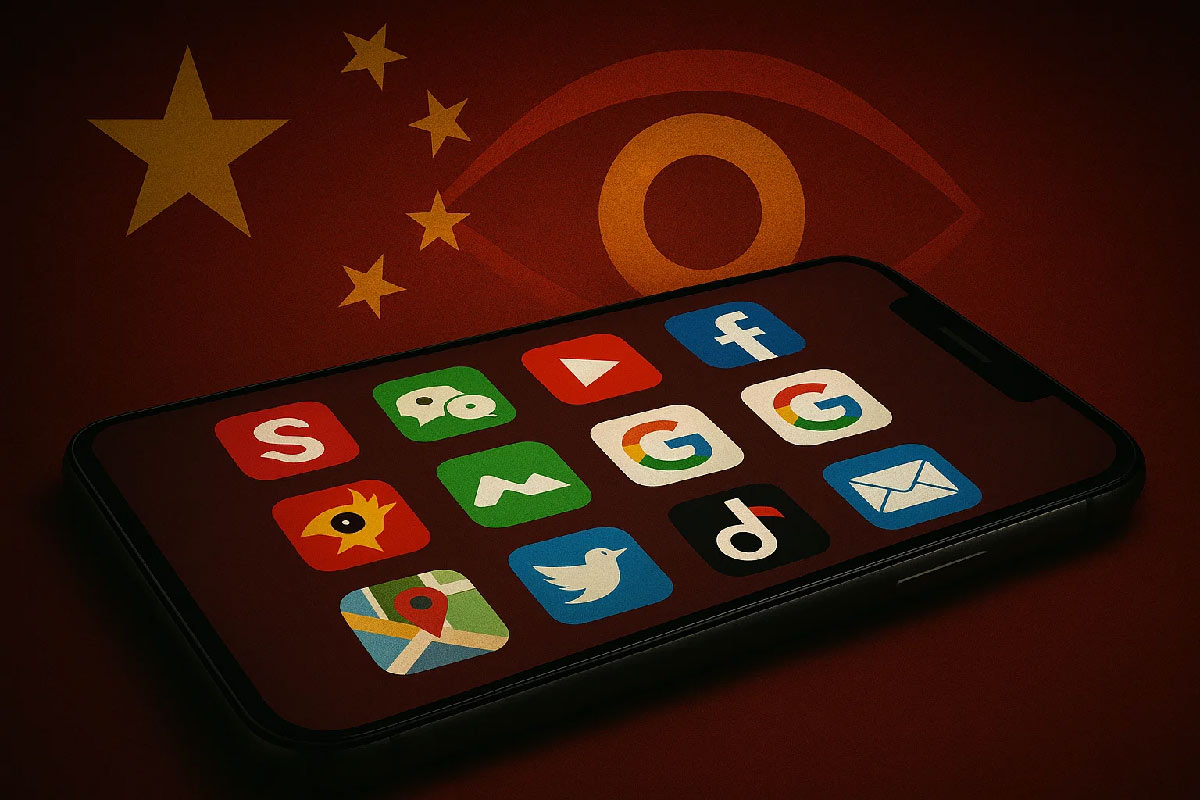China’s Growing VPN Software Restrictions in Tibet
The dawn of the internet era among nations during the early 90s was prevalent for socio-economic development plans including business, education, health, banking, research and information sharing. The Internet came to China in 1994, under the presidency of Jiang Zemin and like the rest of the world, the nation was witnessing the shift from the industrial age to the information age. However the unregulated use of the internet was marked as a potential threat to the Chinese communist leadership and eventually many new technologies were integrated to monitor and control the behavior of its citizens and oppressed minorities. As Deng Xiaoping once said “If you open the window for fresh air, you have to expect some flies to blow in”. Ever since the reform era of the late 70s, the ruling government of China made sure that opening China to the world in terms of trade, economy and technology should not be superseded by the import of western liberal ideas of democracy and freedom of expression among its citizens. In simple terms, they demanded loyalty and conformity among its citizens and oppressed minorities to their communist policies and stood firmly on the ideology of so-called ‘Protecting the Party’.
Since the wave of the internet era was bound to bring diverse opinions, it certainly led to the imposition of strict laws associated with internet usage within its national borders. The Great Firewall of China is the technological apparatus developed by the CCP which is a sophisticated internet firewall used to monitor and control the flow of information into and outside of China. It is considered a splinternet, which divides the global public internet into a subset of information for a specific region. However with the smartphone revolution of the 2010s, the use of Virtual Private Networks (VPNs) became a dominant strategy for those individuals and communities who wanted to access any information which was either unavailable or blocked in a specific region. As many VPN applications were available at the time, it paved a new way for an ever growing number of internet users to overcome the legislative actions and technologies imposed upon them to regulate the Internet domestically. VPNs were certainly the means of tasting internet freedom under authoritarian regimes. Fast forward to 2013 eversince from Xi Jinping’s reign, many strict laws and regulations such as the National Security Law (2015), Online Publishing Service Management Rules (2016), Cybersecurity Law (2016), and Data Security Law ( 2021) were imposed to control the impact of internet usage within the country. The use of VPNs within Tibet and China were always associated with backlashes from the Chinese authorities if caught. In the past, some people who were caught using VPNs were punished with hefty fines and some were even led to possible jail terms for selling VPNs. However foreigners who visit China or Tibet aren’t punished for using VPNs unless they speak out against the CCP. Under the authority of the appointed CCP Secretary of Tibet, Wang Zunzheng, many crackdowns were imposed among the general public to limit the use of VPNs in their devices. Although VPNs can lead to circumvention of China’s internet restrictions within its jurisdiction, they are less likely to completely put a ban on VPNs as it is crucial to maintain foreign businesses and particularly international trade. Some VPNs providers are categorized as legal in China who are also associated with state-owned enterprises that mostly allow banks and law firms in using their services.
In a nutshell, as a consequence of the tyranny of sophisticated surveillance technologies compounded with strict government policies, many Tibetans don’t have access to any information that is censored in China due to their lack of access to secure VPNs. This has caused great difficulty among Tibetans inside Tibet to experience genuine human connections and openly communicate with their families, friends and acquaintances who may even reside outside of Tibet or China. This has become a rising concern to many Tibetan and non-Tibetan activists and journalists outside of Tibet who consistently experience the growing difficulty of getting factual updated information from Tibet. As Elizabeth C. Economy, an expert on China’s politics and foreign policy, says: “The Chinese government is in a state of “schizophrenia” about media policy as it goes back and forth, testing the line, knowing they need press freedom and the information it provides, but worried about opening the door to the type of freedoms that could lead to the regime’s downfall.” With utmost urgency, we believe that a global collective advocacy and sustained effort is instrumental in bringing policy changes within the CCP regime, limiting its restrictions on internet freedom and imposing relaxation of its surveillance and censorship strategies for the future. To maintain Privacy and Security on our devices in the face of intense censorship and surveillance, there are some important best practices to keep in mind. These are as follows :
- Choosing trustworthy VPNs : In daily digital communication, we can hide our personal identities on a certain level by making use of VPNs which reduces the traceability from the authorities who monitor the communications. However in regimes where the use of VPNs is highly restricted and even penalized, one should cautiously use VPNs which are trustworthy instead of state-owned VPNs.
- Using TOR browsers : Tor is free software and an open network that helps you defend against traffic analysis, a form of network surveillance that threatens personal freedom and privacy, confidential business activities and relationships, and state security. It is routed through a series of multiple volunteer-operated servers called nodes or relays due to which it offers slower internet speeds with better anonymity on the web than VPNs.
- Using Android Devices for side-loading : Using Android phones under authoritarian regimes provide more access to secure applications (APK files) through its sideloading feature, which are usually unavailable in official app stores due to restrictions. However since sideloaded applications don’t come with security audits, users must exercise caution to ensure that a sideloaded app from an unknown source is not a malicious one.


